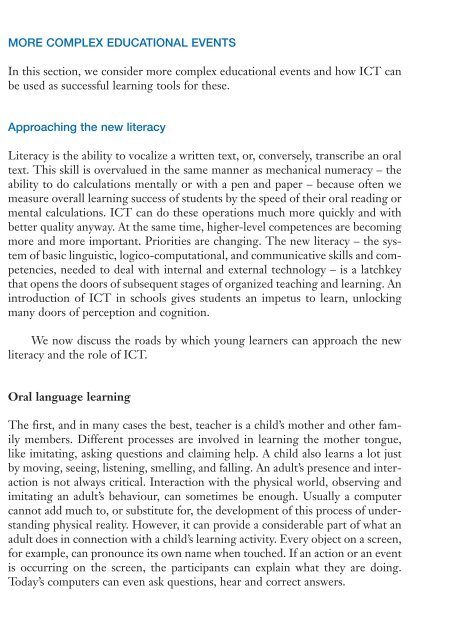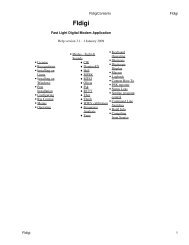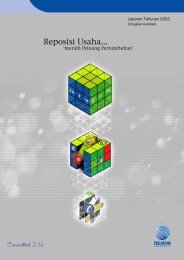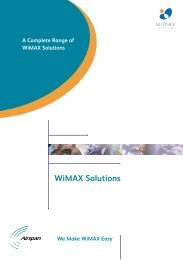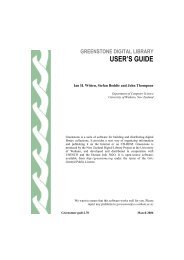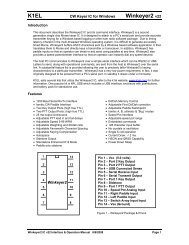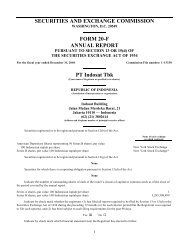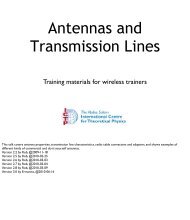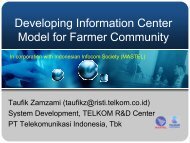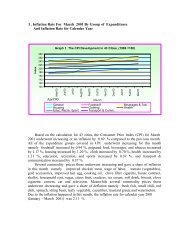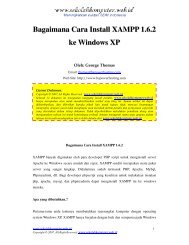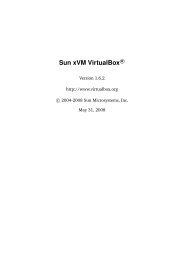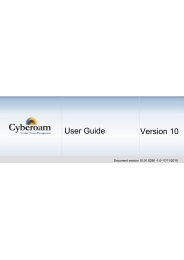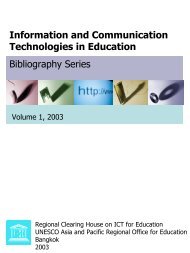Information and communication technologies in schools: a ...
Information and communication technologies in schools: a ...
Information and communication technologies in schools: a ...
Create successful ePaper yourself
Turn your PDF publications into a flip-book with our unique Google optimized e-Paper software.
MORE COMPLEX EDUCATIONAL EVENTS<br />
In this section, we consider more complex educational events <strong>and</strong> how ICT can<br />
be used as successful learn<strong>in</strong>g tools for these.<br />
Approach<strong>in</strong>g the new literacy<br />
Literacy is the ability to vocalize a written text, or, conversely, transcribe an oral<br />
text. This skill is overvalued <strong>in</strong> the same manner as mechanical numeracy – the<br />
ability to do calculations mentally or with a pen <strong>and</strong> paper – because often we<br />
measure overall learn<strong>in</strong>g success of students by the speed of their oral read<strong>in</strong>g or<br />
mental calculations. ICT can do these operations much more quickly <strong>and</strong> with<br />
better quality anyway. At the same time, higher-level competences are becom<strong>in</strong>g<br />
more <strong>and</strong> more important. Priorities are chang<strong>in</strong>g. The new literacy – the system<br />
of basic l<strong>in</strong>guistic, logico-computational, <strong>and</strong> communicative skills <strong>and</strong> competencies,<br />
needed to deal with <strong>in</strong>ternal <strong>and</strong> external technology – is a latchkey<br />
that opens the doors of subsequent stages of organized teach<strong>in</strong>g <strong>and</strong> learn<strong>in</strong>g. An<br />
<strong>in</strong>troduction of ICT <strong>in</strong> <strong>schools</strong> gives students an impetus to learn, unlock<strong>in</strong>g<br />
many doors of perception <strong>and</strong> cognition.<br />
We now discuss the roads by which young learners can approach the new<br />
literacy <strong>and</strong> the role of ICT.<br />
Oral language learn<strong>in</strong>g<br />
The first, <strong>and</strong> <strong>in</strong> many cases the best, teacher is a child’s mother <strong>and</strong> other family<br />
members. Different processes are <strong>in</strong>volved <strong>in</strong> learn<strong>in</strong>g the mother tongue,<br />
like imitat<strong>in</strong>g, ask<strong>in</strong>g questions <strong>and</strong> claim<strong>in</strong>g help. A child also learns a lot just<br />
by mov<strong>in</strong>g, see<strong>in</strong>g, listen<strong>in</strong>g, smell<strong>in</strong>g, <strong>and</strong> fall<strong>in</strong>g. An adult’s presence <strong>and</strong> <strong>in</strong>teraction<br />
is not always critical. Interaction with the physical world, observ<strong>in</strong>g <strong>and</strong><br />
imitat<strong>in</strong>g an adult’s behaviour, can sometimes be enough. Usually a computer<br />
cannot add much to, or substitute for, the development of this process of underst<strong>and</strong><strong>in</strong>g<br />
physical reality. However, it can provide a considerable part of what an<br />
adult does <strong>in</strong> connection with a child’s learn<strong>in</strong>g activity. Every object on a screen,<br />
for example, can pronounce its own name when touched. If an action or an event<br />
is occurr<strong>in</strong>g on the screen, the participants can expla<strong>in</strong> what they are do<strong>in</strong>g.<br />
Today’s computers can even ask questions, hear <strong>and</strong> correct answers.<br />
ICT <strong>in</strong> Learn<strong>in</strong>g <strong>and</strong> Teach<strong>in</strong>g<br />
145


